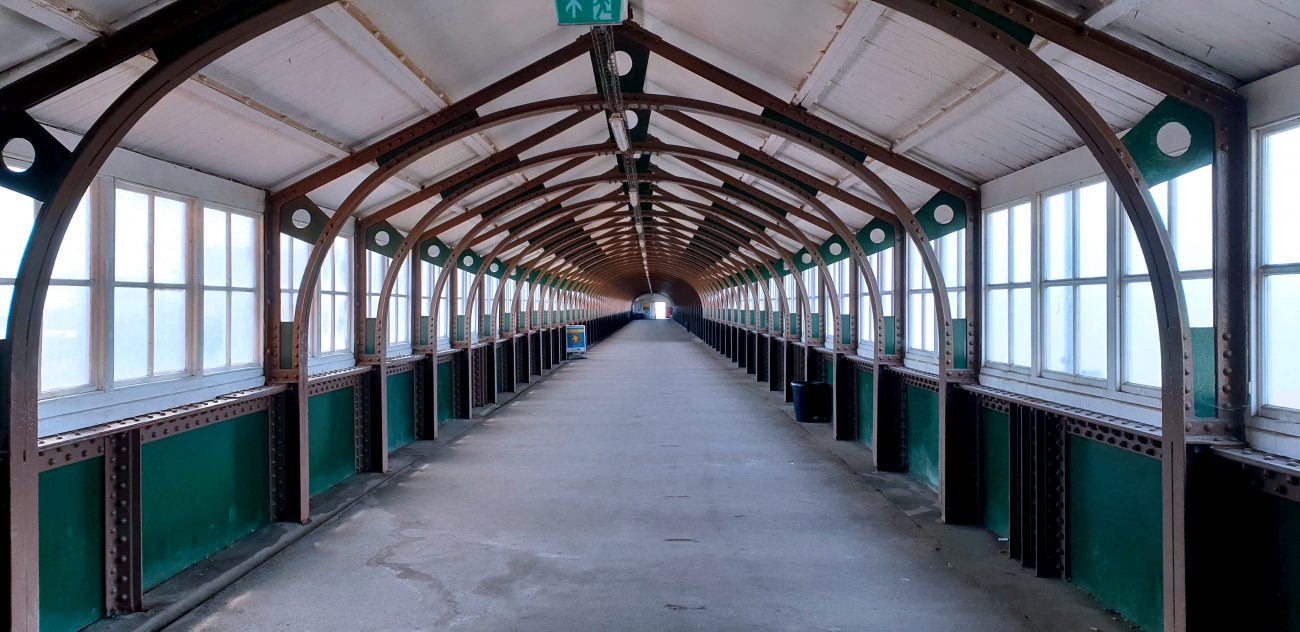We’re Back! Holidays, Off the Beaten Track & Guerilla Filmmaking
On the 6th of August, we set off for short break. Travelling by train and ferry, we went from Zürich to London and back, staying in Paris, Dunkirk, Dover, London, Ramsgate and Calais. We wanted to avoid flying, for various reasons including our CO2 emissions. Anyway, I like travelling by train (as long as it’s not a daily commute in rush hour). You can get a real sense of the journey, instead of popping up in some exotic location as if by teleportation.
We didn’t choose particularly trendy destinations either. If you say you’re going to stay in Ramsgate, most of my British friends will think that rather curious. The response is often, “Why?” rather than “Oh, nice.”
I don’t think I’ve ever been to Ramsgate before, but in my mind it had the reputation (like nearby Margate) of being the most terrible hell hole. We were only there for 3 nights, but our experience was nothing like that. The small port is quite pretty, there’s a decent beach and some trendy cafes popping up.
We only had a few hours in Dover but found ourselves wandering along an old covered walkway towards a pier full of anglers. Being one of the UK’s main ports, a lot of Dover is dedicated to trucks and lorries and flyovers. But I’m always curious to see what’s going on, to stumble on crumbing old pubs and deserted pebbled beaches with old rusting rowing boats.

To me, these kind of places are a lot more interesting than a holiday resort or tourist beauty spot.
Apart from scheduled posts for the MoMo blog to share every day, we managed to forget about the filmmaking and the festival, mostly. But both Andrea and I had our Samsung S9 smartphones out, mostly for snapping pics (although I also shot a few videos too).
One morning in Dunkirk, a strong wind was blowing sand in streaks across the beach so I got filming, just using the Samsung camera app (auto settings). And it really made me think how having this great quality camera in our pockets really gives us many opportunities.
This really reinforced in my mind the need to focus on the strengths of the smartphone camera to get full advantage. We’ve talked about ‘guerilla filmmaking’ for decades, but only now does the smartphone provide us with the perfect tool. It’s tiny, yet it’s not only a camera but a compact computer. The relatively big screen allows us to use apps like FiLMiC Pro and Luma Fusion too.
No, we can’t compete with the image quality of the top end cameras. But that’s not the point.
Act like a Guerilla
The term guerilla filmmaking is a play of the term guerilla warfare. If you know anything about guerilla warfare you will understand the first lesson of this form of combat is to realise you can’t beat the enemy on their terms.
The word “guerrilla” is Spanish and comes from the diminutive form of “guerra” (“war”). It became popular during the Peninsular War: Spanish and Portuguese people rose against the Napoleonic troops and fought against a highly superior army using the guerrilla strategy.
The point is, the Spanish and Portuguese realised they could never defeat Napoleon’s army in a regular fight. They were simply too big and too well armed. So they would use their “underground” movement and knowledge to their advantage. They would fight on their own terms, rather than Napoleon’s.
Now, taking this understanding to filmmaking, if you use your smartphone and try to “fight” Hollywood on their terms, you will get soundly beaten. Against Hollywood’s huge army of technicians, money and equipment you have no chance at all of competing.
Instead, you must use your lack of power to your advantage. In other words, fight in a way the enemy would find impossible. Guerilla warfare was defined by unconventional methods. So if you find yourself in a situation where crew members are reading the filmmaking rulebook at you and you listen, they are leading you to certain defeat.
The fact that Hollywood and big budget productions have to stick to the rules can be their weakness. You on the other hand, with your smartphone in your pocket have no such restrictions. To beat the far superior enemy you will have to start playing by your own rules.
Guerillas use their streetsmarts and their wits. They travel light and anonymously, rather than marching down the street in their uniform like the enemy. They hide amongst ordinary folks so they can’t be identified. You see, the only way to give yourself a chance of defeating the bigger competition is to become like a filmmaking Che Guevara.
And what kind of fighters would Che have invited into his group? Like-minded ones, of course. Any guerilla action is going to be totally undermined if everyone involved isn’t on the same page regarding the need for stealthy tactics. So the most important first step in guerilla filmmaking is to find some other enthusiastic guerillas.
And then it’s time to discuss tactics: how will you define your way of filming? How will you play to your guerilla army’s strengths?
Eager to learn more?
Join our weekly newsletter featuring inspiring stories, no-budget filmmaking tips and comprehensive equipment reviews to help you turn your film projects into reality!
Simon Horrocks
Simon Horrocks is a screenwriter & filmmaker. His debut feature THIRD CONTACT was shot on a consumer camcorder and premiered at the BFI IMAX in 2013. His shot-on-smartphones sci-fi series SILENT EYE featured on Amazon Prime. He now runs a popular Patreon page which offers online courses for beginners, customised tips and more: www.patreon.com/SilentEye

